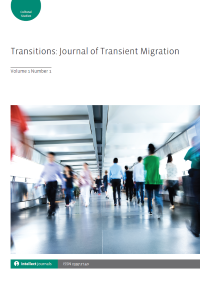
Full text loading...
 , Bino Paul2
, Bino Paul2 , K. M. Parivelan3
, K. M. Parivelan3
This study examines the survival strategies adopted by Uphill Country Tamils during the colonial period to the post-repatriation period to escape exploitation and financial instability through own-account work. Additionally, it investigates the success stories of current Uphill Country Tamils engaged in own-account work and their strategies for combating unemployment. An insider-ethnographic approach was employed to gather data from plantation-concentrated areas. Results revealed that the ethnic group has been able to re-establish own-account work activities upon returning from Sri Lanka to India. However, most Uphill Country Tamils still face severe social and economic challenges. Despite this, some individuals in repatriated settlement areas believe they can overcome their vulnerabilities through own-account work. The shared experiences of the community inspire exploration of self-employment opportunities, adding a new dimension to discussions in the field of own-account work and entrepreneurship research. This study highlights the resilience of Uphill Country Tamils and the significance of own-account work in addressing unemployment and economic issues.

Article metrics loading...

Full text loading...
References


Publication Date:
https://doi.org/10.1386/tjtm_00056_1 Published content will be available immediately after check-out or when it is released in case of a pre-order. Please make sure to be logged in to see all available purchase options.